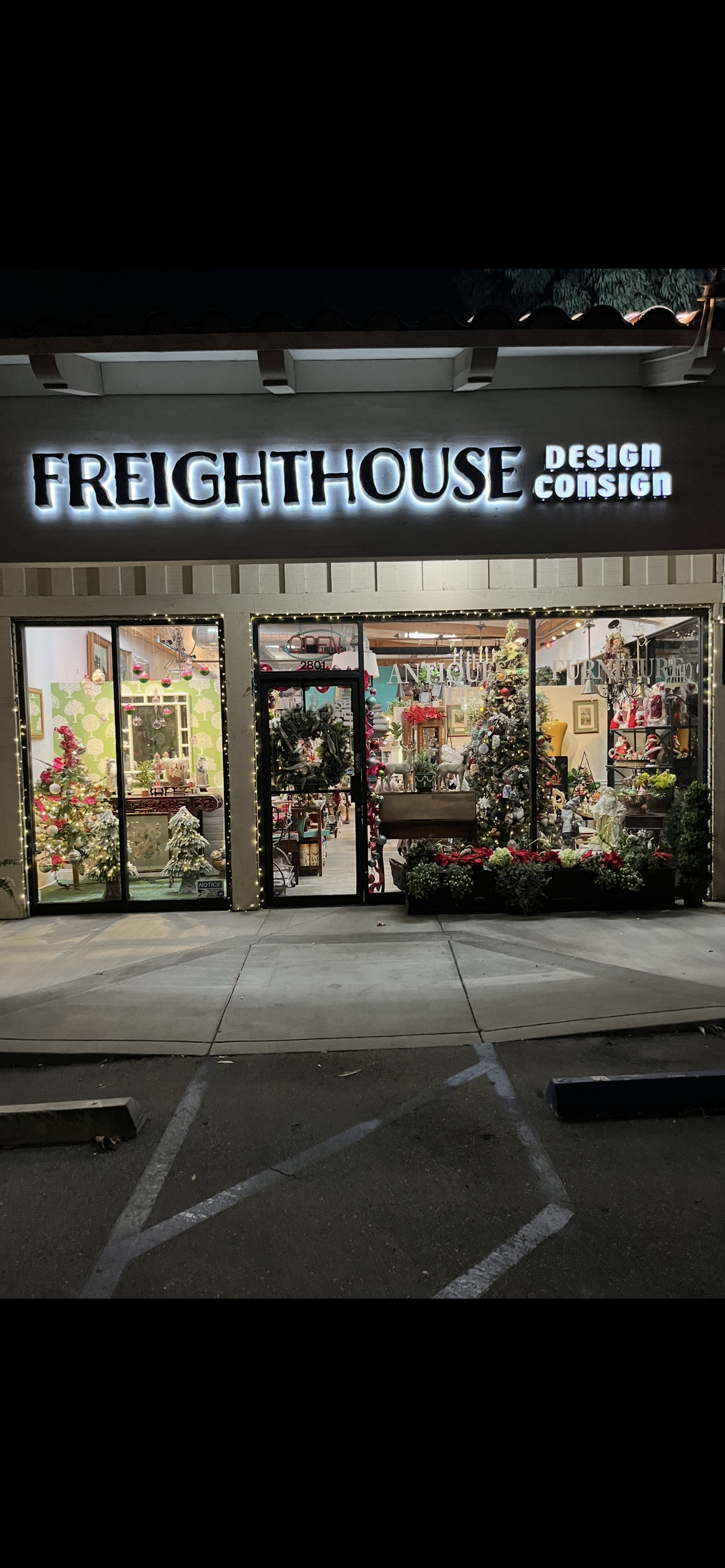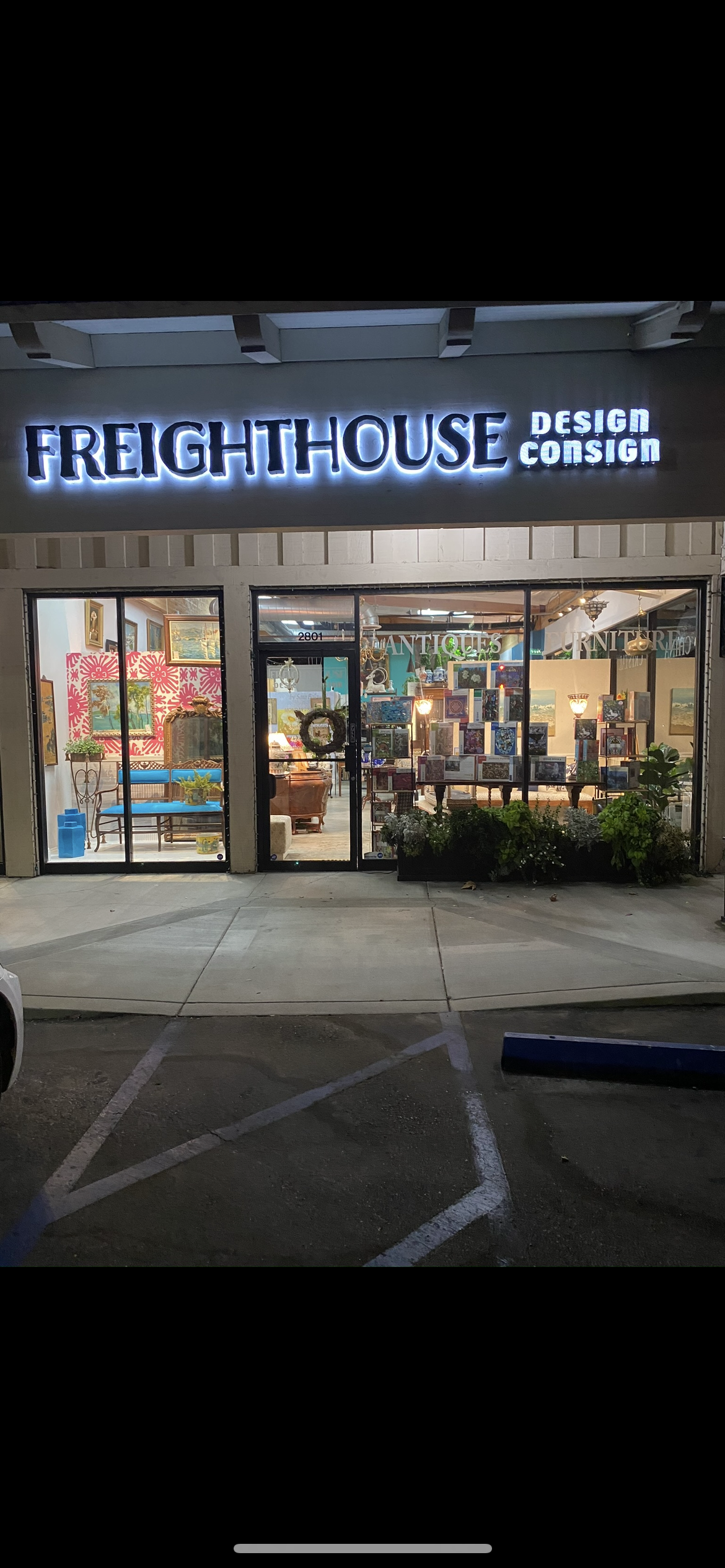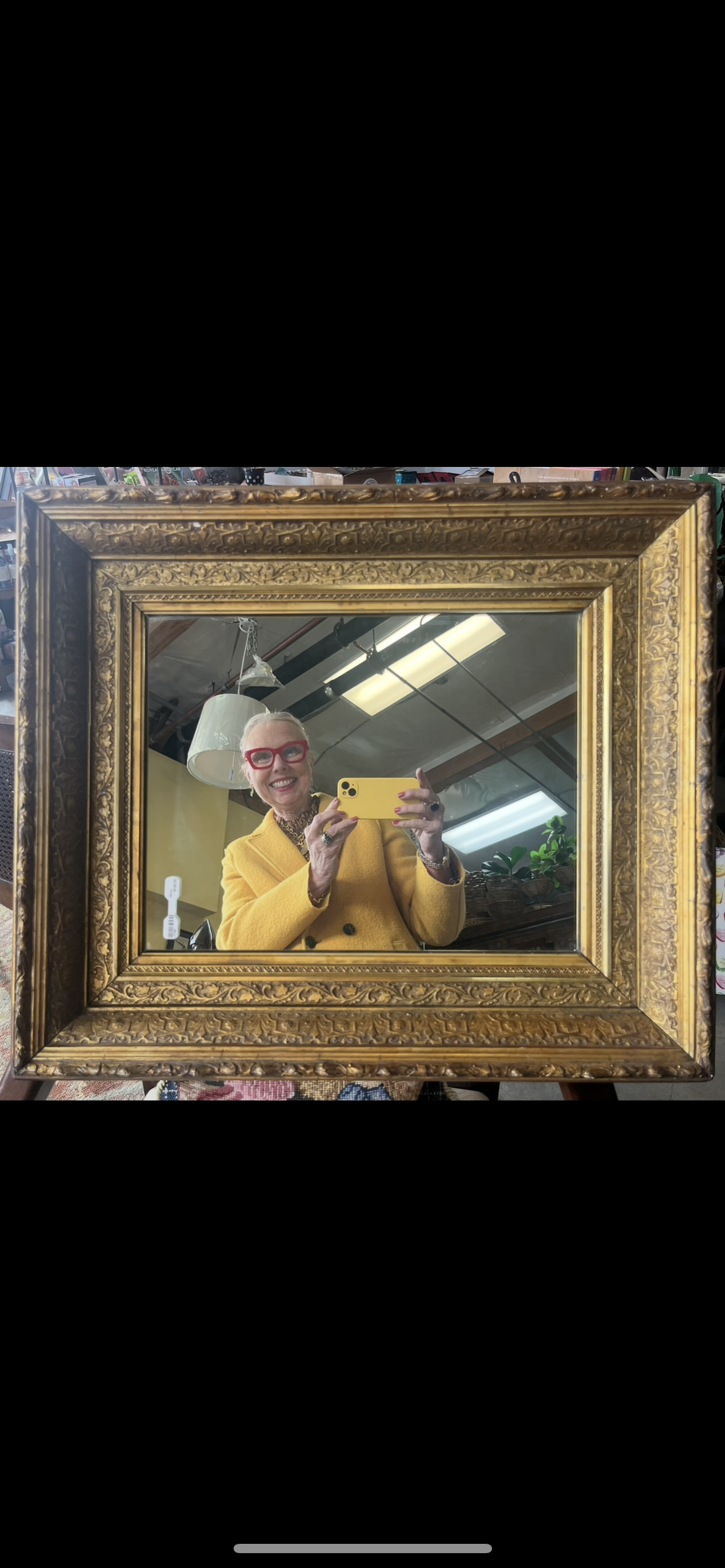Freighthouse Brings History Through Beautiful Antiques to The South Bay By Writer and Contributor Emily McGinn
Sara Balough finds fascination in the history of the antique and vintage items that come through her consignment store, Freighthouse, in Torrance. Freighthouse has been open for nearly 10 years, and Balough has seen a variety of interesting pieces pass through her shop.
“There are definitely pieces I let go that I wish I had,” Balough says. “You can't be in my business and not give up a few of the real treasures. If you don't, you're going to go out of business, right? We can only have so many things.”
Balough was previously in the interior design business, which spurred the concept for Freighthouse.
“I had clients who had beautiful things but were ready to remodel and needed to offload their beautiful things,” she says. “And then I had clients who were just starting out and they needed things. And it seemed to me that there was a need for a connection between the two.”
In 2015, she opened Freighthouse while maintaining her interior design business. During the COVID-19 pandemic, she had to lay off employees at the shop and take it over herself. She enjoyed it and decided to part ways with her interior design business to focus fully on Freighthouse.
When customers come into the shop, they can expect to see the unique and the interesting, from paintings and hand-knotted rugs to porcelain and sterling silver. Often, pieces they receive have interesting backstories. Many of the pieces place emphasis on craftsmanship that is increasingly rare in today’s world.
“It's a connection with your history and a connection with people of bygone times,” Balough says. “I really appreciate a home that is personalized and that reflects not just your personal taste, but maybe has some things that belonged within your family, and you add to it — a curated home.”
She recalls plenty of incredible items that have come through the shop, including one item that looked like a plastic ball but happened to be a signed piece of 1960s artwork by a well-known artist.
The antique and consignment industry has seen its share of disruptions. The decline of retail and the rise of the internet have each presented challenges for storefronts like Freighthouse. The ability for people to find items on the internet themselves lessened the need for dealers to find pieces and resell them. However, Balough says they differentiate themselves by offering pieces that are not easily accessible on the internet. She has also used technology to her advantage, sharing the history of the items they receive on social media.
“I like to do research. I like to find out about where it came from, how it was made, what the story is, and then I share that with my followers on social media,” Balough says. “We have an online store, or we have our in store local customers. We have a really lovely group of customers who are loyal and both consign with us and buy with us.”
As with most industries, adaptability is also key, which Balough especially noticed during the COVID-19 pandemic.
“During COVID, we survived by selling jigsaw puzzles,” she says. “I sold $50,000 worth of jigsaw puzzles during the year that we were shut down, and my daughter would drive, and we would hand-deliver jigsaw puzzles all over the Hill. So part of it is being able to pivot and move towards where there is a market, because it doesn't do you any good to stick rigidly with something that isn't working.”
Balough encourages customers to realize that buying a piece does not mean they have to own it forever and to approach antiquing with that mindset.
“When you buy something, you buy it for yourself and for your enjoyment,” she says. “The idea that you're buying it for a future generation, I think, is a bad idea. To me, your investment is the enjoyment you had from it. So at the point that you're ready to part with it, it's not a loss. If you don't recoup what you paid for it in the beginning, you [still] had 30 years of enjoyment with that.”
On the flip side, Balough also encourages sellers to make sure they are ready to part ways with items.
“I never want people to be disappointed. I always encourage people to take their time about parting with things,” she says. “If they're not sure, don't do it. You don't want to have regrets.”
Although she still faces challenges as a retail business, Balough is thankful for the loyalty of her local customer base that has helped keep Freighthouse alive. She has also noticed that trends are changing — she has seen more of a younger crowd around the shop. She continues to enjoy connecting the right customers with incredible pieces.
“I think for anybody who is in the antique or vintage business, [the excitement] is the hunt,” she says. “It's the treasure hunt. And I don't have to go out looking — it comes to me. It's always a pleasure. Every day, something new comes. Every day, we get to see something we haven't seen before. It's just so much fun.”
Bio:
Emily McGinn is a journalist based in the Los Angeles area. She enjoys reporting on and writing about a variety of topics from lifestyle to news, especially in her areas of specialty, environmental science and political science.







